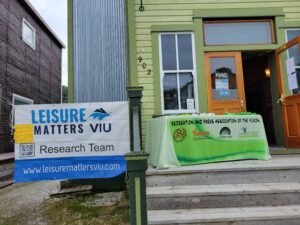Pandemic Impacts on Rural Recreation (PIRR)
The research project, Pandemic Impacts on Rural Recreation in the Yukon Territory, was conducted in 2022 in collaboration with the World Leisure Centre of Excellence at Vancouver Island University. It was funded by Yukon Government through the COVID-19 Recovery Research Program.
Five communities participated in the project that was conducted on the traditional territories of the Carcross/Tagish First Nation, Selkirk First Nation, White River First Nation, and Tr’ondëk Hwëch’in First Nation.
The questions asked were:
- How did the pandemic impact Yukoners’ participation in recreation?
- In what ways did recreation providers adapt their service delivery during the pandemic?
- How can recreation assist residents and communities in recovering from the impacts of the pandemic?

Public health restrictions led to reduced/no recreation programming and access to facilities. To counteract a lack of structured recreation and increased social isolation, residents turned to outdoor, family-oriented and/or on-the-land activities.
Sustainable and inclusive recreation is essential for recovery. Community recreation needs to rely less on facilities and more on access to self-led recreation. Outdoor rinks, trails, sport courts, and picnic shelters cost less to build, operate and staff and can be accessed for recreation at any time. Self-led recreation promotes participation regardless of age, ability or means and supports healthy lifestyles and social connections within rural communities.
For more information or access to the reports, contact RPAY.
Please direct research-specific questions to Dr. Aggie Weighill – World Leisure Centre of Excellence at Vancouver Island University.
